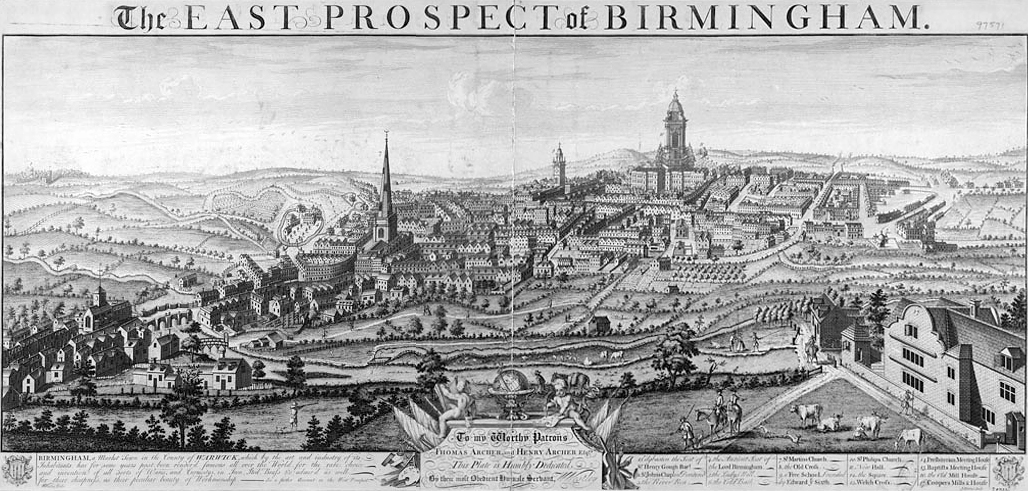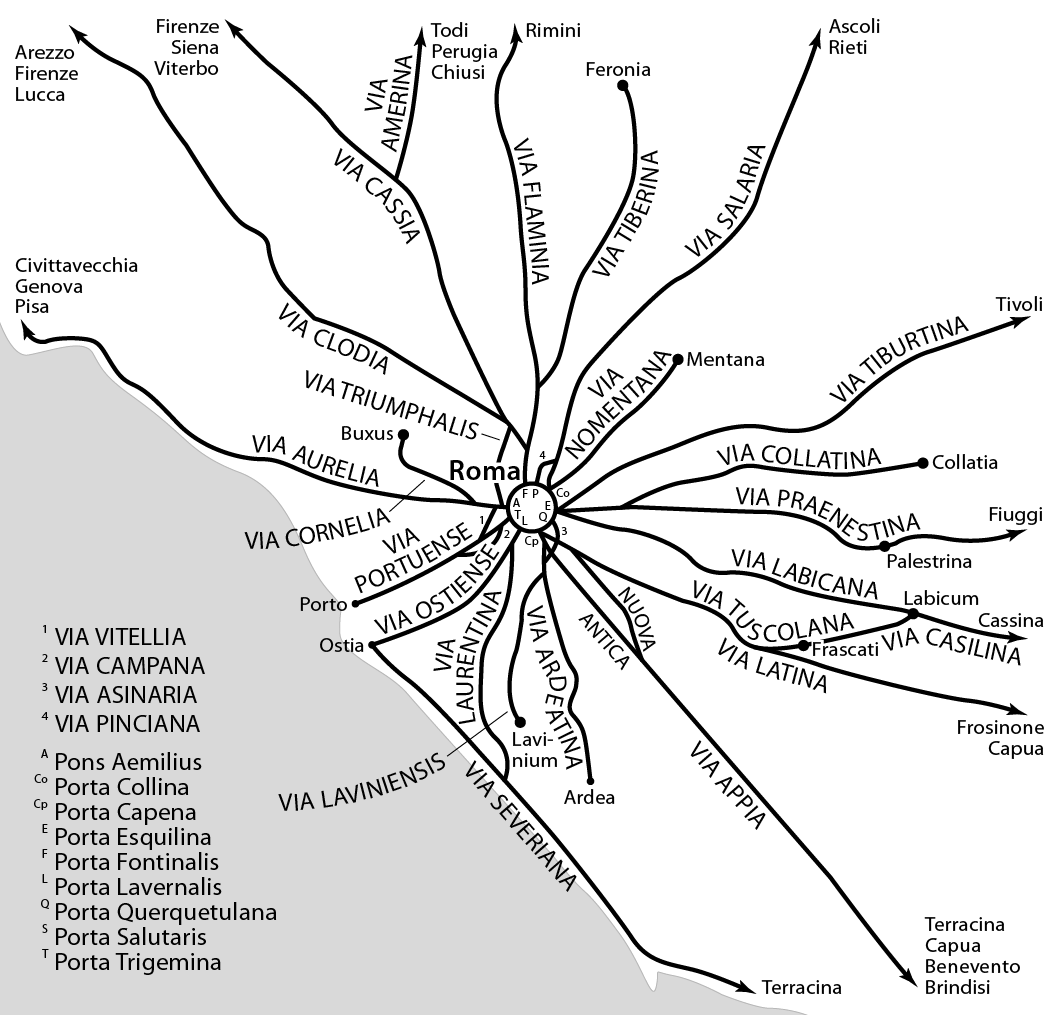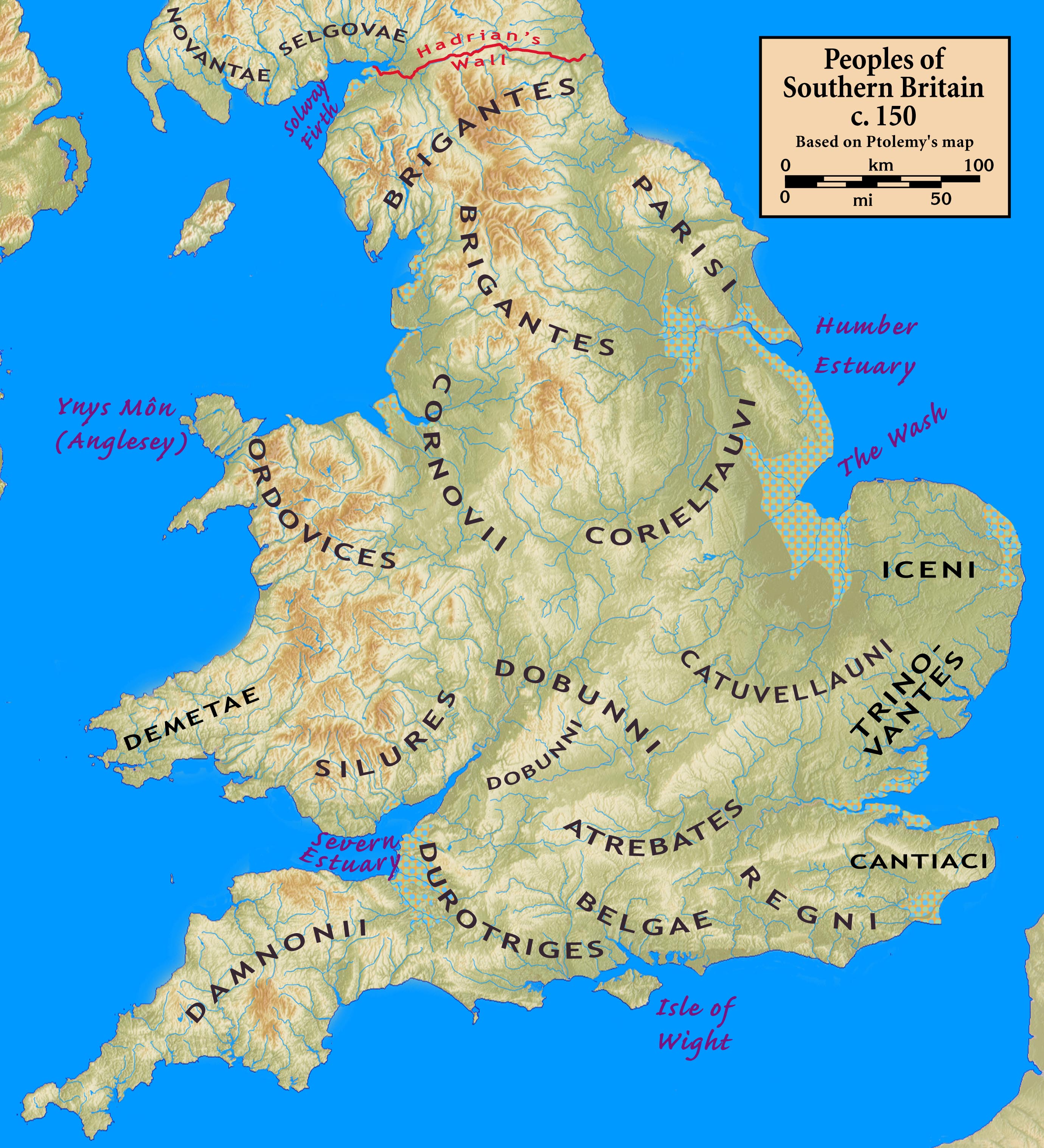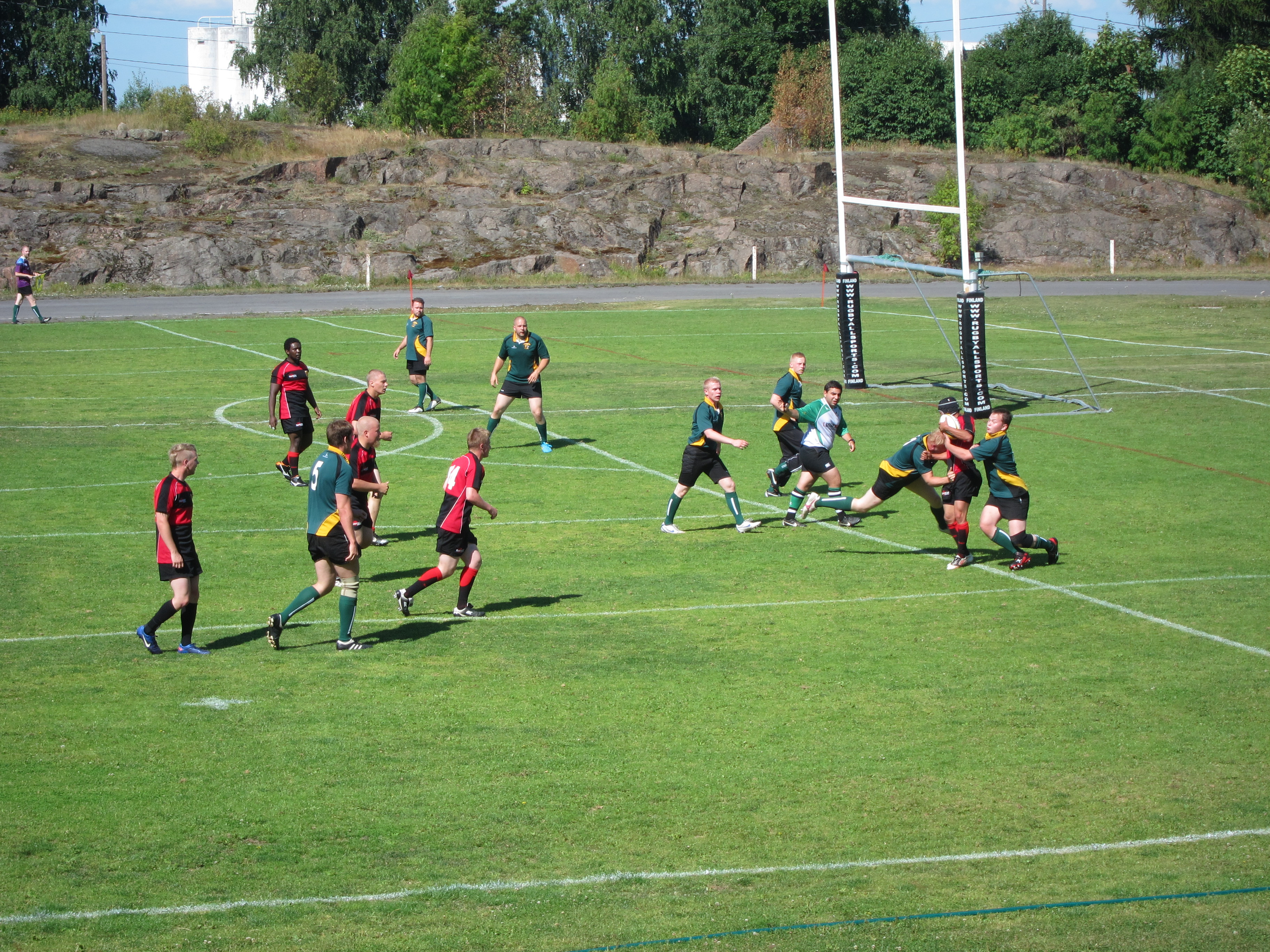|
Rugby, England
Rugby is a market town in eastern Warwickshire, England, close to the River Avon. At the 2021 census, its population was 78,117, making it the second-largest town in Warwickshire. It is the main settlement within the larger Borough of Rugby, which had a population of 114,400 in 2021. Rugby is situated on the eastern edge of Warwickshire, near to the borders with Leicestershire and Northamptonshire. It is the most easterly town within the West Midlands region, with the nearby county borders also marking the regional boundary with the East Midlands. It is north of London, east-south-east of Birmingham, east of Coventry, north-west of Northampton and south-south-west of Leicester. Rugby became a market town in 1255. In 1567, Rugby School was founded as a grammar school for local boys but, by the 18th century, it had gained a national reputation and eventually became a public school. The school is the birthplace of rugby football which, according to legend, was invented in ... [...More Info...] [...Related Items...] OR: [Wikipedia] [Google] [Baidu] |
William Webb Ellis
William Webb Ellis (24 November 1806 – 24 February 1872) was an English Anglican clergyman who, by tradition, has been credited as the inventor of rugby football while a pupil at Rugby School. According to legend, Webb Ellis picked up the ball and ran with it during a school football match in 1823, thus creating the "rugby" style of play. Although the story has become firmly entrenched in the sport's folklore, it is not supported by first-hand evidence, and is discounted by most rugby historians as an origin myth. The Webb Ellis Cup is presented to the winners of the Rugby World Cup. Biography William Webb Ellis was born in Salford, Greater Manchester, Salford, Lancashire, the youngest of three sons of James Ellis, a cornet in the 7th Dragoon Guards. The eldest son, James, died aged three and the second son, Thomas, of Dunchurch, Warwickshire, became a surgeon. Third son William was made a Lieutenant of the 3rd Dragoon Guards in 1809, joining them in Portugal.Notices of the ... [...More Info...] [...Related Items...] OR: [Wikipedia] [Google] [Baidu] |
Birmingham
Birmingham ( ) is a City status in the United Kingdom, city and metropolitan borough in the metropolitan county of West Midlands (county), West Midlands, within the wider West Midlands (region), West Midlands region, in England. It is the List of English districts by population, largest local authority district in England by population and the second-largest city in Britain – commonly referred to as the second city of the United Kingdom – with a population of million people in the city proper in . Birmingham borders the Black Country to its west and, together with the city of Wolverhampton and towns including Dudley and Solihull, forms the West Midlands conurbation. The royal town of Sutton Coldfield is incorporated within the city limits to the northeast. The urban area has a population of 2.65million. Located in the West Midlands (region), West Midlands region of England, Birmingham is considered to be the social, cultural, financial and commercial centre of the Midland ... [...More Info...] [...Related Items...] OR: [Wikipedia] [Google] [Baidu] |
Roman Road
Roman roads ( ; singular: ; meaning "Roman way") were physical infrastructure vital to the maintenance and development of the Roman state, built from about 300 BC through the expansion and consolidation of the Roman Republic and the Roman Empire. They provided efficient means for the overland movement of armies, officials, civilians, inland carriage of official communications, and trade goods. Roman roads were of several kinds, ranging from small local roads to broad, long-distance highways built to connect cities, major towns and military bases. These major roads were often stone-paved and metaled, cambered for drainage, and were flanked by footpaths, bridleways and drainage ditches. They were laid along accurately surveyed courses, and some were cut through hills or conducted over rivers and ravines on bridgework. Sections could be supported over marshy ground on rafted or piled foundations.Corbishley, Mike: "The Roman World", page 50. Warwick Press, 1986. At the peak of ... [...More Info...] [...Related Items...] OR: [Wikipedia] [Google] [Baidu] |
Watling Street
Watling Street is a historic route in England, running from Dover and London in the southeast, via St Albans to Wroxeter. The road crosses the River Thames at London and was used in Classical Antiquity, Late Antiquity, and throughout the Middle Ages. It was used by the ancient Britons and paved as one of the main Roman roads in Britannia (Roman-governed Great Britain during the Roman Empire). The line of the road was later the southwestern border of the Danelaw with Wessex and Mercia, and Watling Street was numbered as one of the major highways of medieval England. First used by the ancient Britons, mainly between the areas of modern Canterbury and using a natural ford near Westminster, the road was later paved by the Romans. It connected the ports of Dubris (Dover), Rutupiae ( Richborough Castle), Lemanis ( Lympne), and Regulbium (Reculver) in Kent to the Roman bridge over the Thames at Londinium (London). The route continued northwest through Verulamium (St&n ... [...More Info...] [...Related Items...] OR: [Wikipedia] [Google] [Baidu] |
Tripontium
Tripontium (Latin for "Place of three bridges") was a town in Roman Britain. It lay on the Roman road later called Watling Street (and known today as the A5) at a site now chiefly within the civil parish of Churchover in the English county of Warwickshire and partly in Leicestershire, some 3.4 miles north-east of Rugby and 3.1 miles south of Lutterworth. Character Tripontium was established as a military frontier post soon after the Roman invasion of Britain in AD 47. Its name references the bridges over the River Avon and two of its tributaries. Tripontium later developed into a civilian town which was inhabited for around 400 years, peaking in the 2nd century, before being abandoned in the late 4th century when the Romans left Britain. Excavations The exact position of Tripontium remained a mystery for centuries, but it was found by the antiquarian Matthew Bloxam in 1836. Excavation works at the site were begun in 1961 by the Rugby Archaeological Society and have con ... [...More Info...] [...Related Items...] OR: [Wikipedia] [Google] [Baidu] |
Roman Britain
Roman Britain was the territory that became the Roman province of ''Britannia'' after the Roman conquest of Britain, consisting of a large part of the island of Great Britain. The occupation lasted from AD 43 to AD 410. Julius Caesar invaded Britain in 55 and 54 BC as part of his Gallic Wars. According to Caesar, the Britons had been overrun or culturally assimilated by the Belgae during the British Iron Age and had been aiding Caesar's enemies. The Belgae were the only Celtic tribe to cross the sea into Britain, for to all other Celtic tribes this land was unknown. He received tribute, installed the friendly king Mandubracius over the Trinovantes, and returned to Gaul. Planned invasions under Augustus were called off in 34, 27, and 25 BC. In 40 AD, Caligula assembled 200,000 men at the Channel on the continent, only to have them gather seashells () according to Suetonius, perhaps as a symbolic gesture to proclaim Caligula's victory over th ... [...More Info...] [...Related Items...] OR: [Wikipedia] [Google] [Baidu] |
Corieltauvi
The Corieltauvi (also the Coritani, and the Corieltavi) were a Celtic tribe living in British Iron Age, Britain prior to the Roman conquest of Britain, Roman conquest, and thereafter a ''civitas'' of Roman Britain. Their territory was in what is now the English East Midlands. They were bordered by the Brigantes to the north, the Cornovii (Midlands), Cornovii to the west, the Dobunni and Catuvellauni to the south, and the Iceni to the east. Their capital was called ''Ratae Corieltauvorum'', known today as Leicester. Late Iron Age The Corieltauvi were a largely agricultural people who had few strongly defended sites or signs of centralised government. They appear to have been a federation of smaller, self-governing tribal groups. From the beginning of the 1st century, they began to produce inscribed coins: almost all featured two names, and one series had three, suggesting they had multiple rulers. The names on the earliest coins are so abbreviated as to be unidentifiable. Later coi ... [...More Info...] [...Related Items...] OR: [Wikipedia] [Google] [Baidu] |
Dobunni
The Dobunni were one of the Iron Age tribes living in the British Isles prior to the Roman conquest of Britain. There are seven known references to the tribe in Roman histories and inscriptions. Various historians and archaeologists have examined the Dobunni, including Stephen J. Yeates in his book '' The Tribe of Witches'' (2008), where he suggests that the latter part of the name possibly derives from *''bune'', a cup or vessel, with a similar meaning to the later tribal name Hwicce; both being related to the recognisable cult of a Romano-British goddess. This view has been sharply criticised by several archaeologists. Archaeologist Miles Russell suggests that their original name may have been "Bodunni", connecting this with the Celtic word ''*bouda'' meaning "Victorious", in the sense of "The Victorious Ones". Territory The tribe lived in central Britain in an area that today broadly coincides with the English counties of Bristol, Gloucestershire and the north of Somerset, ... [...More Info...] [...Related Items...] OR: [Wikipedia] [Google] [Baidu] |
Iron Age
The Iron Age () is the final epoch of the three historical Metal Ages, after the Chalcolithic and Bronze Age. It has also been considered as the final age of the three-age division starting with prehistory (before recorded history) and progressing to protohistory (before written history). In this usage, it is preceded by the Stone Age (subdivided into the Paleolithic, Mesolithic and Neolithic) and Bronze Age. These concepts originated for describing Iron Age Europe and the ancient Near East. In the archaeology of the Americas, a five-period system is conventionally used instead; indigenous cultures there did not develop an iron economy in the pre-Columbian era, though some did work copper and bronze. Indigenous metalworking arrived in Australia with European contact. Although meteoric iron has been used for millennia in many regions, the beginning of the Iron Age is defined locally around the world by archaeological convention when the production of Smelting, smelted iron (espe ... [...More Info...] [...Related Items...] OR: [Wikipedia] [Google] [Baidu] |
Rugby Football
Rugby football is the collective name for the team sports of rugby union or rugby league. Rugby football started at Rugby School in Rugby, Warwickshire, England, where the rules were first codified in 1845. Forms of football in which the ball was carried and tossed date to the Middle Ages (see medieval football). Rugby football spread to other Public school (United Kingdom), English public schools in the 19th century and across the British Empire as former pupils continued to play it. Rugby football split into two codes in 1895, when twenty-one clubs from the North of England left the Rugby Football Union to form the Rugby Football League, Northern Rugby Football Union (renamed the Rugby Football League in 1922) at the George Hotel, Huddersfield, George Hotel, Huddersfield, over payments to players who took time off work to play ("broken-time payments"), thus making rugby league the first Football, code to turn professional sport, professional and pay players. Rugby union turn ... [...More Info...] [...Related Items...] OR: [Wikipedia] [Google] [Baidu] |
Public School (United Kingdom)
A public school in England and Wales is a type of fee-charging Private schools in the United Kingdom, private school originally for older boys. The schools are "public" from a historical schooling context in the sense of being open to pupils irrespective of locality, Christian denomination, denomination or paternal trade guild, trade or profession or family affiliation with governing or military service, and also not being run for the profit of a private owner. Although the term "public school" has been in use since at least the 18th century, its usage was formalised by the Public Schools Act 1868 (31 & 32 Vict. c. 118), which put into law most recommendations of the 1864 Clarendon Report. Nine prestigious schools were investigated by Clarendon (including two day schools, Merchant Taylors' School, Northwood, Merchant Taylors' and St Paul's School, London, St Paul's) and seven subsequently reformed by the Act: Eton College, Eton, Shrewsbury School, Shrewsbury, Harrow School, Ha ... [...More Info...] [...Related Items...] OR: [Wikipedia] [Google] [Baidu] |
Grammar School
A grammar school is one of several different types of school in the history of education in the United Kingdom and other English-speaking countries, originally a Latin school, school teaching Latin, but more recently an academically oriented Selective school, selective secondary school. The original purpose of medieval grammar schools was the teaching of Latin. Over time the curriculum was broadened, first to include Ancient Greek, and later English and other languages of Europe, European languages, natural sciences, mathematics, history, geography, art and other subjects. In the late Victorian era grammar schools were reorganised to provide secondary education throughout England and Wales; Scotland had developed a different system. Grammar schools of these types were also established in British territories overseas, where they have evolved in different ways. Grammar schools became one of the three tiers of the Tripartite System of state-funded secondary education operating in ... [...More Info...] [...Related Items...] OR: [Wikipedia] [Google] [Baidu] |









